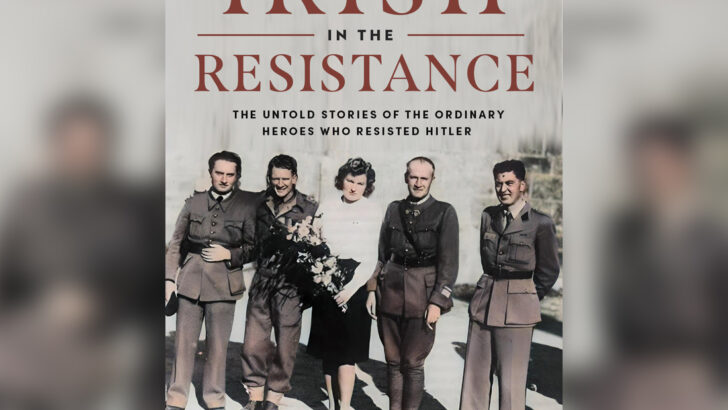The Irish in the Resistance: The untold stories of the ordinary heroes who resisted Hitler
by Clodagh Finn and John Morgan (Gill Books, €15.99 / £13.99)
Ireland was neutral in World War 11 but as a concession to embattled Britain, Taoiseach Eamon de Valera did not prevent Irish citizens from enlisting in the British forces. But there were other Irish who risked their lives. This book records the heroism of the estimated 50 or more Irish women and men who resisted Nazi occupation in France, Italy, Belgium and Denmark.
The Irish in British uniform became prisoners of war if captured, but these Resistance volunteers, most of them women, risked torture, execution or appalling conditions in concentration camps. The authors have done extensive research in wartime records and interviews with relatives to tell their story.
Exploits
Some of these exploits have already been recorded such as those of Samuel Beckett and his wife, Suzanne, in occupied France and of Monsignor Hugh O’Flaherty and singer Delia Murphy in Rome where they used Vatican cover to help hundreds if not thousands of Jews and escaped Allied prisoners. Isadore Ryan blazed a trail here with his 2017 book No Way Out which recorded the deeds of Irish nationals in wartime France.
The present book casts its net widely and includes Irish women and men helping Allied servicemen and Jews to escape their Nazi hunters in Belgium, Netherlands and even Denmark. Some of these were sisters of religious orders and priests. They did not use arms but usually worked for the escape lines, like Comet, which guided airmen who had been shot down to safe houses and then along the dangerous routes down to the Pyrenees and into neutral Spain on their way to Gibraltar and freedom.
She was sent to the notorious Ravensbruck concentration camp for women north of Berlin where conditions were appalling and many ended up in the crematorium”
They are all inspiring stories. Take Catherine Crean who was born in 1879 and grew up at 8 Moore St before going to work as a governess in Brussels. When World War II broke out she was in her sixties but was soon working for the Comet Line which hid Allied airmen until they were passed on to France on their way to the Pyrenees. The network was betrayed and Catherine was first sent to St Gilles prison where she was interrogated and most likely tortured to give information. She was sent to the notorious Ravensbruck concentration camp for women north of Berlin where conditions were appalling and many ended up in the crematorium. A fellow prisoner and resistance worker who survived recalled that one night Catherine called to her from her bunk. “She had no strength left and all she wanted was for me to comb her hair.” Catherine died of dysentery on April 3 1945, aged 66, just weeks before the camp was liberated by Russian soldiers.
Mary Cummins
Mary Cummins was another Irish woman who helped British airmen while she worked as a translator in Brussels. She was born in Dublin and lived on Richmond Road and went to the Dominican school on Eccles St. When her network was betrayed in 1941, she was arrested. She was moved from prison to prison and eventually sentenced to death in Berlin but sent to Ravensbruck. “The whole stay in Germany was torture from beginning to end,” she said later.” The torture of hunger, thirst and humiliation.“I was beaten. I had my hands in a vice. I had very often a revolver on my back.”
She was later decorated by King Leopold of the Belgians and General Eisenhower”
In January 1945, she was released to the Irish diplomatic representative in Berlin, Con Cremin, who brought her to Switzerland when the war ended. She was later decorated by King Leopold of the Belgians and General Eisenhower.
Heroism
The book is full of similar stories of heroism and sacrifice in the Allied cause by Irish women and men who risked death rather than stay neutral. They deserve to be remembered.


 Front cover of 'The Irish in the Resistance: The untold stories of the ordinary heroes who resisted Hitler'
by Clodagh Finn and John Morgan
Front cover of 'The Irish in the Resistance: The untold stories of the ordinary heroes who resisted Hitler'
by Clodagh Finn and John Morgan 